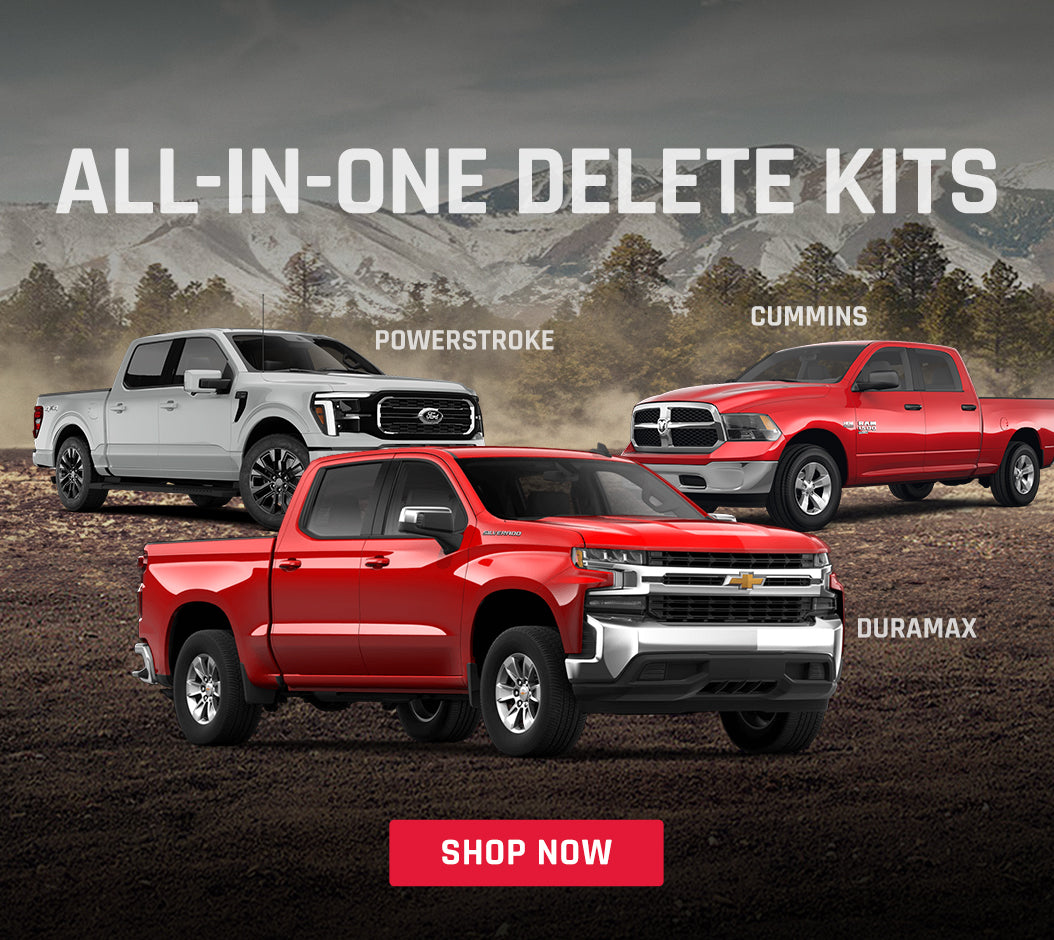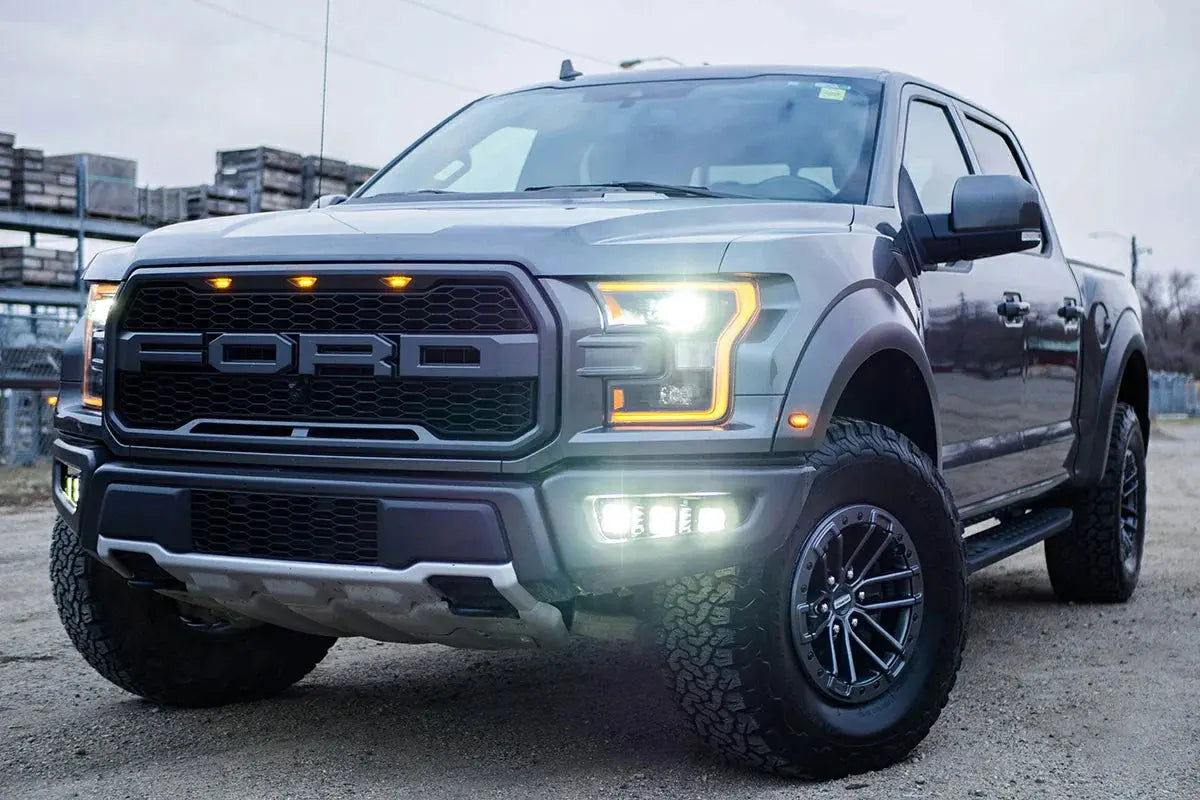Introduction
The EPA’s recent move to reconsider the 2009 Endangerment Finding has sparked intense debate across the diesel industry. For farmers, truck owners, and construction crews, this isn’t just a policy headline—it directly affects daily operations, equipment reliability, and long-term investments.
Since 2019, SPETUNER has been dedicated to helping North American diesel owners navigate exactly these kinds of challenges. We’ve seen firsthand how Tier IV emissions systems complicate maintenance, drive up costs, and frustrate operators who want their machines to run. The complexity of these systems often leads to increased exhaust backpressure and higher operating temperatures, which are the primary enemies of diesel longevity.
In this article, we’ll break down where Tier IV standards came from, why so many owners are pushing back, and how SPETUNER solutions can help you keep your equipment performing at its best—no matter what direction the regulations take. Whether you are dealing with a Cummins, Duramax, or Powerstroke, understanding these shifts is crucial for your bottom line.
A Quick Look Back: How We Got to Tier IV
When the EPA first started regulating diesel emissions in the mid-1990s, the goal was simple: reduce harmful pollutants like NOx, hydrocarbons, and particulate matter.
- Tier 1 (1996): Basic emission controls introduced for off-road engines.
- Tier 2 (2001–2003): Tighter regulations forced new engine designs and fuel injection strategies.
- Tier 3 (2005–2006): Incremental reductions, pushing combustion efficiency further.
- Tier 4 Interim (2011): Exhaust treatment systems appeared, introducing early versions of DPF technology.
- Tier 4 Final (2014): A dramatic shift—DPF, DEF, and advanced after-treatment (SCR) became standard.
Tier IV compliance slashed emissions, but the tradeoff was steep. Engines became more complex, more expensive, and more challenging to maintain. Many owners quickly learned that “cleaner” often meant more downtime, higher repair bills, and added costs for DEF fluid. The introduction of these systems also led to the dreaded "Limp Mode," where a simple sensor failure can render a half-million-dollar machine useless.
At SPETUNER, we’ve tracked this progression closely. It’s the reason we focus on high-performance intake, exhaust, cooling, and engine parts—to give diesel owners the reliability and consistency that Tier IV systems often compromise. Our components are engineered to handle the thermal loads that factory systems struggle with.
The Real-World Struggles with Tier IV: What Owners Are Saying
If you spend time around farmers, truckers, or heavy equipment operators, you’ll hear the same frustrations over and over again. The comments on recent EPA updates highlight the reality: Tier IV systems may look good on paper, but in practice, they often cause more headaches than solutions.
Frequent Breakdowns and Downtime
Operators describe tractors shutting down in the middle of harvest or trucks going into limp mode hundreds of miles from the nearest shop. One farmer explained that he had to keep an older tractor around to finish the job after spending nearly half a million dollars on a Tier IV machine. This unplanned downtime is the single biggest threat to seasonal profitability.
Rising Maintenance and Fuel Costs
DPF regens and DEF refills aren’t just inconvenient—they’re expensive. Many owners watch their fuel gauges drop during forced regens, wondering if all that extra diesel is helping the environment. For small farms or independent truckers, those costs add up fast, often negating the fuel efficiency gains promised by newer engine designs.
Questionable Efficiency and Emissions Benefits
Several owners question whether these systems are reducing pollution at all. Burning extra fuel to clean out a filter feels counterintuitive, and the high failure rates don’t inspire confidence. The total lifecycle carbon footprint of manufacturing complex replacement parts for failed emissions systems is a growing point of contention.
At SPETUNER, we don’t write the regulations—but we do provide solutions. Our intake, exhaust, and cooling upgrades are built to reduce strain on engines, extend service intervals, and help diesel owners avoid unnecessary downtime by optimizing the engine's natural airflow and thermal management.
What a Rollback Could Mean for Diesel Owners
The big question on everyone’s mind: if Tier IV rules are rolled back, what happens next?
Potential Benefits for Owners
Simpler engines without complicated emissions gear are usually cheaper to buy, easier to maintain, and more reliable. That could mean fewer breakdowns in the field, less DEF to worry about, and lower long-term ownership costs. It could also revitalize the used equipment market, where simpler Tier 2 and Tier 3 machines currently command a premium.
The Risks of Uncertainty
But it’s not all upside. If a future administration reinstates Tier IV, manufacturers could swing back to stricter systems overnight. That kind of regulatory whiplash creates chaos for production planning, resale values, and equipment financing. Owners who buy today might see their machines lose value tomorrow if compliance requirements shift again.
Where SPETUNER Fits In
No matter how the EPA rules shift, SPETUNER’s mission stays the same: give diesel owners more control over performance and reliability. Our upgraded intake, exhaust, cooling, and engine parts are designed to handle the demands of real work—whether the rules tighten or loosen. We provide the durability diesel upgrades that the factory leaves out.
The SPETUNER Advantage: Solutions Built for Diesel Owners
At SPETUNER, we’ve listened closely to what diesel owners are saying. The frustrations with Tier IV are real—but so is the need to keep trucks, tractors, and heavy equipment running day after day. That’s why every product we offer is built with reliability and practicality in mind.
Intake Systems
Our high-performance intake kits are designed to improve airflow and reduce engine strain. Better breathing means cooler Intake Air Temperatures (IAT), steadier performance, and less stress on Tier IV systems, which often suffer from "choking" under heavy loads.
Exhaust Solutions
We provide exhaust upgrades that support smoother operation and more efficient flow. The goal is to reduce exhaust gas temperatures (EGTs), keep heat levels under control, and help engines work the way they were meant to, maximizing every drop of fuel.
Cooling & Engine Components
Overheating is a common complaint with modern diesels, especially during heavy towing or high-ambient temperature operations. SPETUNER cooling and engine parts are engineered for durability, helping operators stay productive even in tough environments where factory cooling systems fail.
No gimmicks, no shortcuts—just solid, tested solutions to help you get the most from your diesel investment. We focus on the core mechanics that drive horsepower, torque, and reliability.
Conclusion
The future of Tier IV diesel standards is still up in the air. The EPA may roll back some rules, or the next administration doubles down again. For owners, that uncertainty is frustrating—but one thing is clear: the need for reliable, cost-effective equipment never changes.
SPETUNER was built on that exact belief. Since 2019, we’ve been committed to supporting diesel owners across North America with proven upgrades that cut downtime, lower stress, and deliver real-world performance.
Whether you’re running a farm tractor, a heavy-duty pickup, or a fleet of work trucks, our mission is simple—help you keep your diesel working harder, longer, and smarter. Stay connected with SPETUNER for updates, expert insights, and performance parts built to handle whatever the future brings.
FAQs
Q1: What exactly are Tier IV diesel standards?
A1: Tier IV standards are EPA regulations that require advanced emissions systems like DPF and DEF to cut pollutants. While effective on paper, they’ve added complexity, higher costs, and more downtime for many diesel owners.
Q2: Why do Tier IV engines break down so often?
A2: Frequent regens, clogged filters, and high-heat exhaust systems put extra stress on modern diesels. Many owners report shutdowns or “limp mode” at the worst times, often during heavy fieldwork or long hauls.
Q3: Do DPF and DEF systems reduce pollution?
A3: They do reduce certain pollutants, but some operators argue that the forced regens and extra fuel burn offset the gains. The debate is ongoing, and many feel the technology still needs refinement.
Q4: How does a rollback of Tier IV rules affect diesel owners?
A4: A rollback could make future engines simpler and more reliable, but it also risks hurting resale values and creating regulatory uncertainty. Owners need to stay cautious with new investments.
Q5: Why are maintenance costs higher with Tier IV equipment?
A5: Beyond regular servicing, Tier IV systems require DEF fluid, more frequent filter replacements (DPF cleaning), and specialized repairs. These costs stack up quickly, especially for farms and fleets.
Q6: Are older Tier I or Tier II diesel engines better?
A6: Many operators prefer older engines because they were simpler, cheaper to maintain, and often more fuel-efficient. However, they don’t meet today’s emissions standards for newer equipment.
Q7: What can diesel owners do to minimize Tier IV downtime?
A7: Staying ahead on maintenance, keeping DEF fresh, and ensuring proper airflow and cooling are key. SPETUNER’s performance parts are designed to improve reliability in these specific areas.
Q8: Does SPETUNER offer solutions that are EPA-compliant?
A8: Yes. SPETUNER focuses on intake, exhaust, cooling, and engine upgrades that enhance performance and durability without compromising compliance.
Q9: Will SPETUNER products still be useful if the EPA rolls back Tier IV rules?
A9: Absolutely. Our products aren’t just about emissions—they’re about keeping engines cooler, stronger, and more reliable under tough working conditions, no matter the regulations.
Q10: Why should I trust SPETUNER for my diesel upgrades?
A10: Since 2019, SPETUNER has worked exclusively with North American diesel trucks and equipment. We build solutions tested in real-world conditions to reduce downtime and help owners get the most from their investment.





